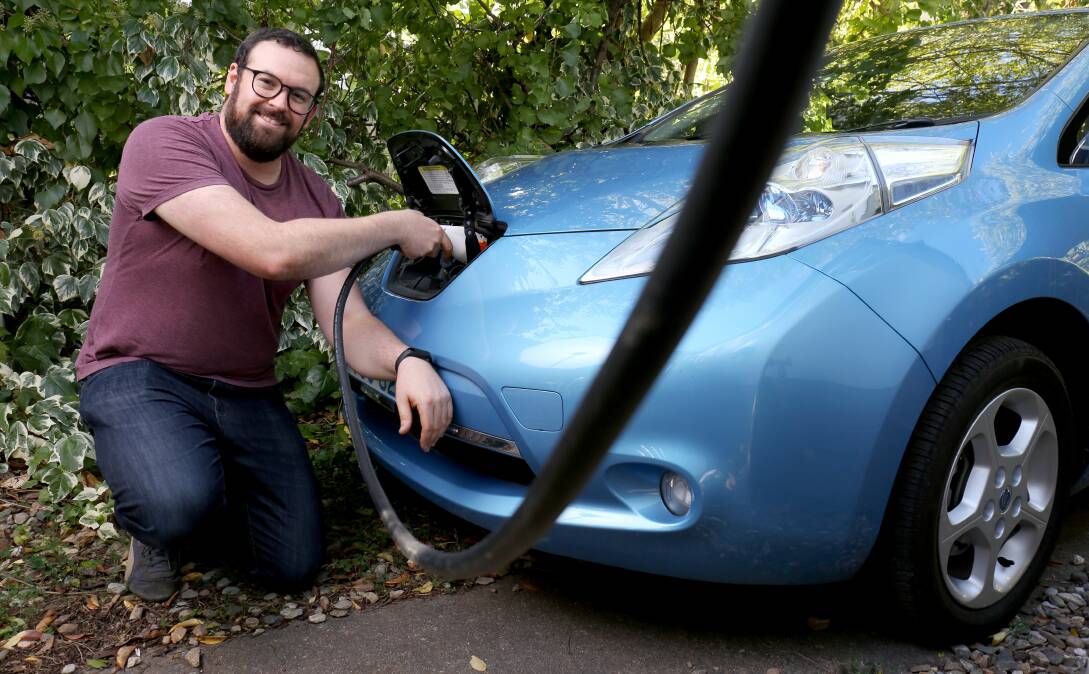
The homes of 22 Canberra electric vehicle owners have been fitted with fast-chargers as part of a federally-funded study aimed at reducing pressure on the grid.
Smart chargers have been installed at the homes of more than 160 electric vehicle owners in the ACT, Victoria and Tasmania, with capacity to charge three times faster and allow network operators to control when charging occurs.
Participants will plug in their vehicles to charge when convenient, however, providers will adjust to times when the grid has the most capacity, including after midnight or during the day when the sun is shining.
Derek James will trial the technology on his household's 2012 Nissan Leaf, purchased after the catastrophic summer of 2019-2020.
Mr James said they purchased the low-range vehicle for $18,500 after losing a petrol vehicle to hail damage.
"We had the bushfires at the end of 2019 and 2020, then the hail, then we had the pandemic, now floods," he said. "Since that point, we've tried to do everything we can to minimise our carbon footprint."
Mr James said his trial charger was designed to shut off when there was too much demand on the grid of an evening, ensuring there was enough power for other users.
If excess electricity was being fed into the grid, it would be directed to cars plugged into the charges, he said.
"It's really about grid stability," Mr James said.
Participants will be notified of forecasts for sunny days, also known as "solar soak events", to plug in their car and adsorb the abundance of solar energy being exported to the grid.
According to electricity provider Jemena, most owners tend to charge at around 6pm, already a time of high demand.
Shaun Reardon, Jemena executive general manager, said it was clear energy network businesses needed to be ready for an influx of electric vehicles.
"With more Australians buying electric vehicles, we're keen to create a sustainable solution with communities that supports that choice, without needing to build extra energy infrastructure, which in turn could increase electricity costs for customers," Mr Reardon said.
Electric vehicle sales rose from 6900 in 2020 to 20,665 in 2021, with the ACT leading the nation in the uptake of purchases, according to the Electric Vehicle Council.
Australian government projections indicate electric vehicles will be up to 30 per cent of all new cars sold by 2030, meaning about 1.7 million electric cars needing charging.
According to the Electric Vehicle Council, demand is far outstripping supply in Australia.
Mr James said his recent attempt to replace a petrol vehicle was quashed when 18,000 people registered to purchase around 100 electric vehicles being exported to Australia.
The Electric Vehicle Conference and Exhibition will kick off at Exhibition Park Canberra on Friday, August 5 providing attendees with information on current and emerging electric vehicles on the market.
Those ready to make the switch will have the opportunity to drive an electric vehicle on the weekend.







